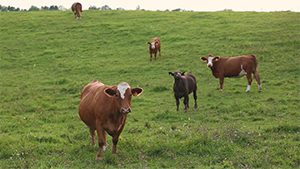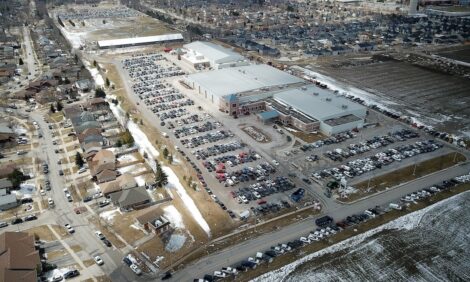



Cuba loosens ban on cattle slaughter, sales of beef, dairy
Cuba announced that it was loosening a decades-old ban on the slaughter of cattle and sale of beef and dairy as part of agricultural reforms as the Communist-run country battles with food shortages.
Reuters reports that ranchers will be allowed to do as they wish with their livestock “after meeting state quotas and always with a guarantee it will not result in a reduction of the herd,” the Communist Party daily, Granma, said late on 13 April.
In 1963 the government made it illegal for Cubans to slaughter their cows or sell beef and byproducts without state permission after Hurricane Flora killed 20% of the country's herd.

The number of cattle and milk production improved through 1989 when the Soviet Union collapsed. Since then, the herd has remained stagnant at around 70% of the 1963 level, and powdered milk imports have increased.
Farmers can be fined for killing their own cows, leading many to have only one for milk, as if another dies by accident, they face an investigation. Others hide calves in the barn. Still others team up with rustlers, though they face up to 15 years behind bars if caught.
This has led to the local joke that you can get more prison time for killing a cow than a human being.
Cuban economists say deregulation of the agricultural sector could help boost production.
The government is expected to announce further agricultural measures in a roundtable discussion on state television as it battles a grave economic crisis that has resulted in food shortages and long lines for even the most basic products such as rice, beans and pork, let alone milk, butter, cheese, yogurt and beef.
The Caribbean island nation imported more than 60% of the food it consumed before new US sanctions on top of the decades-old trade embargo and then the COVID-19 pandemic, which decimated tourism, left it short of cash to import agricultural inputs from fuel and feed to pesticides, let alone food.

Economic growth contracted 11% in 2020 and imports 40%, according to the government.
Agricultural production has stagnated in recent years and declined dramatically in 2020, though the government has yet to publish any data.
Last November, the government said it would allow farmers, private traders and food processors to engage in direct wholesale and retail trade if they met government contracts.
The state owns 80% of the arable land and leases most of that to farmers and cooperatives, and until recently had sold them inputs in exchange for up to 90% of their output plus a set margin.
Read more about this story here.
Source: Reuters


